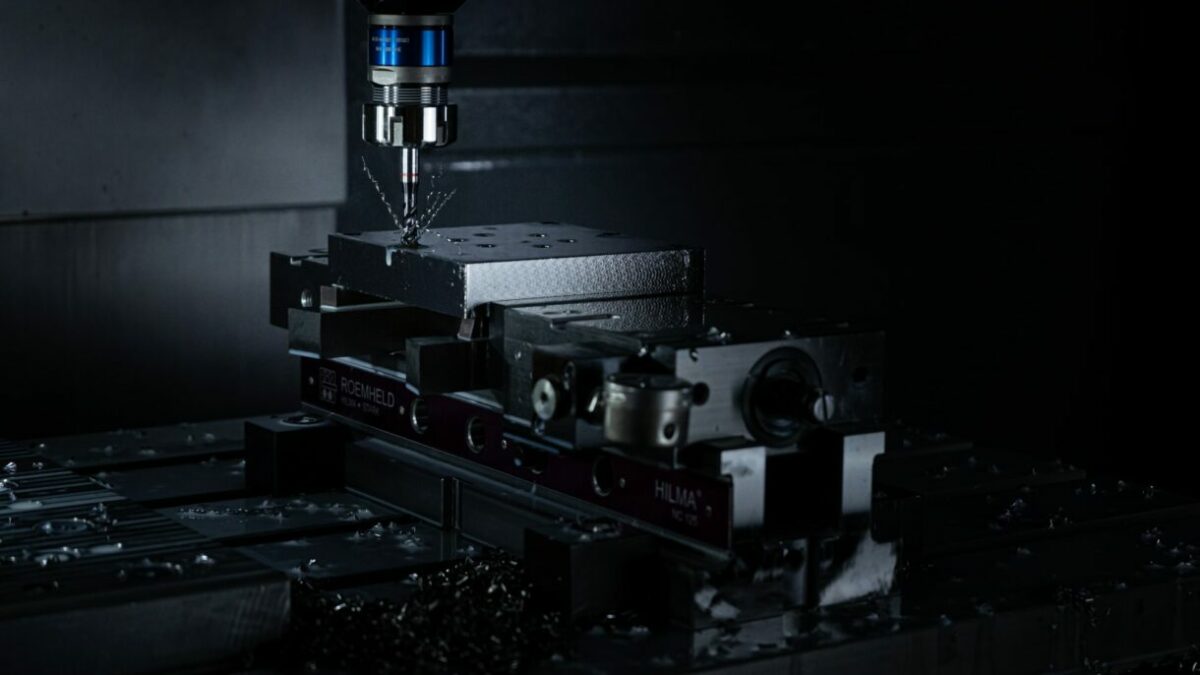What is CNC?
CNC or Computer Numerical Control is the automated control of machines such as drills to produce metal and plastic parts through the use of software embedded in the microcomputer attached to the tools. The machinist uses Computer-Aided Design or Computer Aided Manufacture software to design the end product. The software translates it into G-code which is interpreted by the microcomputer to cut the part on multiple axes to cut the desired workpiece.
CNC machines cut and move the workpiece as programmed on the controller. There are several different types of CNC machines, some of which are;
Lathes: These machines rotate and cut the piece and can be used to make simple shapes such as spheres, cylinders, and cones.
Routers: Used to cut large dimensions in wood, metal, sheets, and plastic and can be used for complex shapes.
Plasma Cutters: These cut-through sheets using a powerful laser.
3D Printers: 3D Printers are similar to 3ERP injection molding however it injects molten material into a mold whereas 3D printers lay down small amounts of material to make the desired shape and then solidified using a laser.
Pick and Place Machine: It doesn’t cut material however, the programming allows the machine to pick up components and place them in the desired location. They’re usually used for repetitive tasks or moving very heavy pieces.
Milling: CNC milling uses rotary cutters that advance into the workpiece to shape it.
Why CNC Education is Important

There are 2 types of specialized CNC training programs; a programmer who programs the machinery in order to make it functional and the operator who runs the machine to produce the end product. A course or training program will equip you with all the necessary skills from mastering CAD and CAM to getting hands-on experience with CNC machines which will help the learners on the job.
Due to technological advancement, production process automation is the biggest reason for labor redundancy however; at the same time, the automated process requires professionals to operate it smoothly. Around 90% of the trainees who complete CNC courses from accredited institutions get hired immediately and the demand continues to grow.
Another reason that formal education is so helpful in landing a good job is that employers trust renowned institutions over informal training that one gets on the job. This is because it is very important to understand every aspect of CNC machining and acquire extensive knowledge about software, machine types, mathematics, and technical skills to equip the machinist with the skills to avoid causing damage to the expensive machines. Additionally, quality control will not let a substandard part be produced; although a machine can consistently produce a good product, it can also consistently produce a bad product and it all depends on the person who designed the part in the first place.
Should you Invest in CNC Education?

In today’s industry, there is a huge gap between the demand and supply of skilled and experienced individuals who can fully operate a CNC machine; almost every business relies on parts made with a CNC machine and the market lacks people who can properly execute operations. A career in CNC can open up opportunities in so many different fields such as aviation, automotive, aerospace, computers, technology, medical and dental industries, etc. Growing demands for skilled professionals around the globe means that a stable career and high chances of job advancement with a good salary package are the quite reasonable expectation from a career shift to CNC specialization.
CNC machining is an interactive job that brings a different task every time; the work is not repetitive, boring, or alienating. Instead, it is quite a fun job to do despite the skills that have to be learned. The job challenges the brain and keeps one’s creative juices flowing so if you’re one who loves taking on a challenge, this might be the job for you.
However, undoubtedly, courses and training that aim to equip workers with the latest skills are very expensive as the technology is still new and it runs at high costs. Since automation is becoming the lifeline of production and even small businesses consider bringing in some kind of machinery, these skills will stay relevant for quite a while but it might not be worth the career switch if you are already doing well at your current job, lack the interest and adaptation for technology or don’t have the funds to invest in education while having something to fall back on.
If you’re interested in CNC machines, you can find out more how it managed to conquer the manufacturing induistry.
